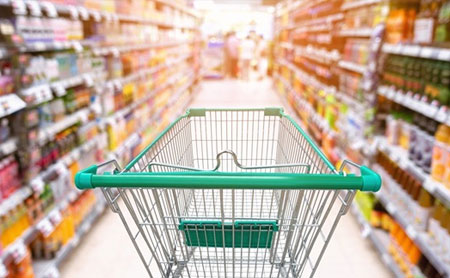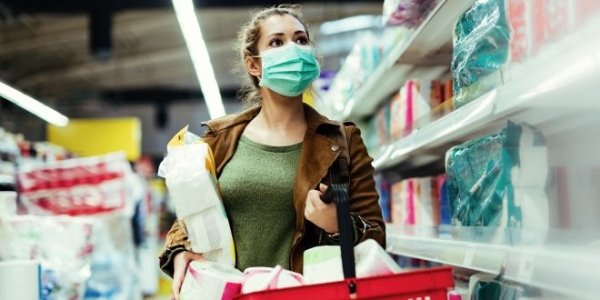President Cyril Ramaphosa has warned of growing ‘pandemic fatigue’ across the country and the possibility of a second coronavirus resurgence in South Africa.
Despite this, he announced further easing of the current level 1 lockdown in a national address on Wednesday evening (11 November).
The president said that many countries are experiencing a second coronavirus wave which has hit harder than the initial wave.
“As South Africans, we have endured what we have hoped is the worst of the storm,” Ramaphosa said. He said that after hitting a high of 12,000 new cases a day in July, the daily cases has stabilised at closer to 2,000 cases a day.
“While the coronavirus has declined in the cases over the last two months, we must acknowledge that this pandemic has taken a great toll on the health and wellbeing of our people,” he said.
“If we are to prevent the resurgence of infection there are a few areas where we must pay attention to.”
Despite these concerns, Ramaphosa said that government will ease some restrictions, including the hours when alcohol can be sold by liquor stores.
“Even as restrictions on the sale of alcohol are lifted further, we are mindful that excessive alcohol consumption is a hinderance in our fight against the coronavirus. It is vital that South Africans act responsibly to ensure we do not see a spike in alcohol-related incidents,” he said.
The president said that the country will reopen international travel to all countries subject to health and safety regulations, and a clearance certificate.
“As restrictions on international travel are lifted, it is more important than ever for travellers to follow all safety protocols to protect their health and minimise the risk of acquiring Covid-19,” he said.
Hotspots
Ramaphosa said he is particularly concerned about the situation in the Eastern Cape which has seen a resurgence of cases in recent weeks.
The president said the resurgence is being driven by massive increases in the Nelson Mandela Bay area and other metropoles. He said that evidence shows that the outbreaks could have been driven by universities, schools and large gatherings.
Ramaphosa said that he is concerned that this spike in cases could spread further in the country as people travel too and from the Eastern Cape – particularly areas of the Western Cape.
The government, he said, will implement a resurgence plan, developed in conjunction with the World Health Organisation (WHO) to deal with this resurgence.
He said that the government will also extend the national sate of disaster by a further month to 15 December 2020.
Festive season
The president said that he is also concerned about the upcoming festive season and activities which could lead to a resurgence in cases. He specifically drew attention to movement between provinces, increased social gatherings as well as social drinking.
He stressed that South Africans should continue to wear masks and social distance, no matter how uncomfortable it is, as failing to do so could lead to a return to higher lockdown level and more restrictions.
“I have been increasingly getting concerned and alarmed by what I have been seeing on social media and even on television where people are holding big parties, gatherings and social events as though the virus does not exist.
“The same rules that applied in the early days of the lockdown should apply now. And now that we are in summer it is far easier to meet outdoors or in rooms with the windows open.”
This echoes concerns from the chairperson of the Covid-19 Ministerial Advisory Committee, professor Salim Abdool Karim, who said that people are dropping their guard and not wearing masks – a phenomenon not unique to South Africa, as the entire world faces ‘pandemic fatigue’.
Karim said that this fatigue, combined with increased movement, drinking and partying during the December holidays is cause for concern.
“We are heading into a December period which carries quite a lot of risk. We have hope that we can get through it by just ensuring that we become more vigilant and control the prospects of super-spreader events.
“If we can do that, then we can get through December with just a little spike. Because if we don’t then we are looking at a prospect of a second surge.”
Vaccine
Ramaphosa praised the news that pharmaceutical company Pfizer has seen success in the development of a coronavirus vaccine and its implications for the fight for the pandemic.
He said that South Africa is collaborating with several multinational companies to provide a safe and effective vaccine for citizens and has joined several international task teams to ensure that access to a vaccine is available across Africa.
The president also praised the announcement that local pharmaceutical company Aspen has entered an agreement with Johnson & Johnson for the development of a vaccine in the country.
“In recognition of our country’s manufacturing capability one of the leading pharmaceutical companies in the world, Johnson & Johnson, has entered into an agreement with a local company, Aspen Pharmacare, to manufacture and package its candidate vaccine.
“Aspen has capacity to manufacture 300 million doses of the candidate vaccine at its Nelson Mandela Bay plant. This is life-saving medical product that will be needed across the world, which will be manufactured by South African workers,” the president said.
Read full article HERE





